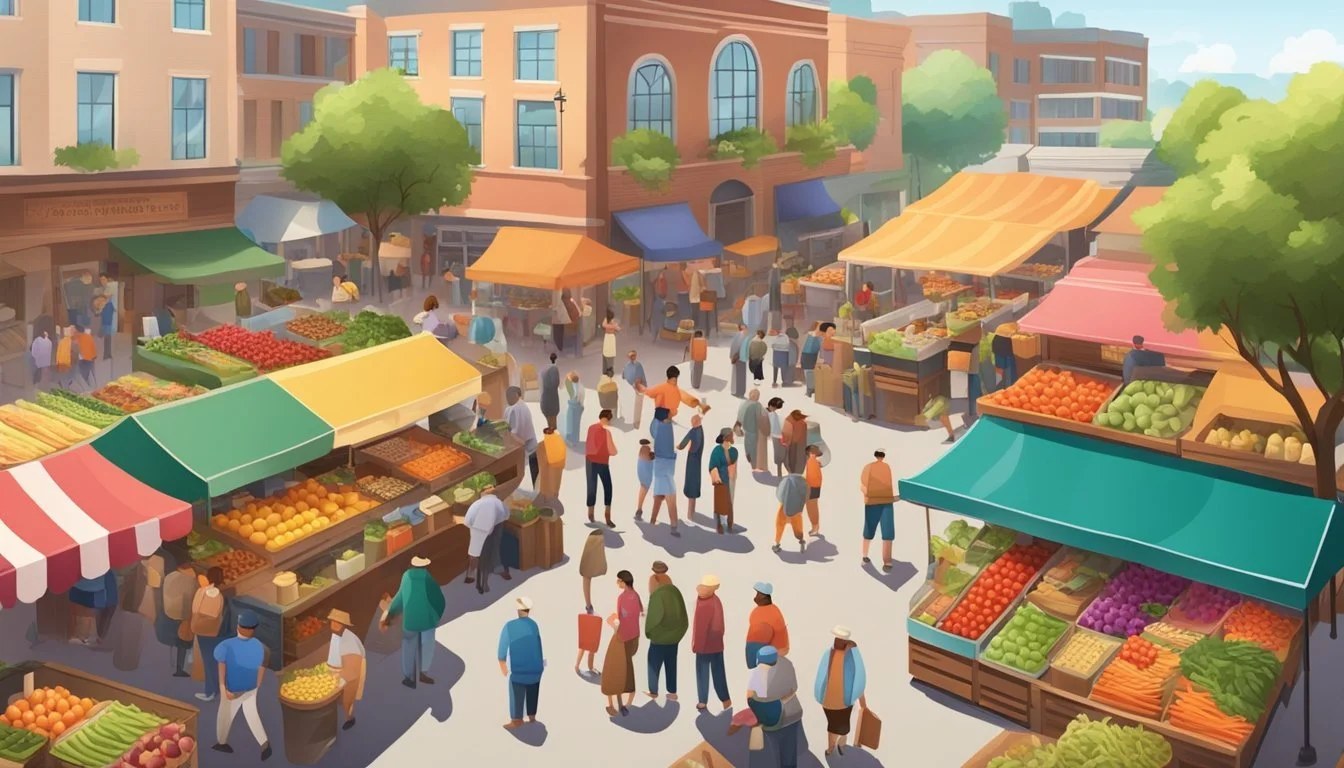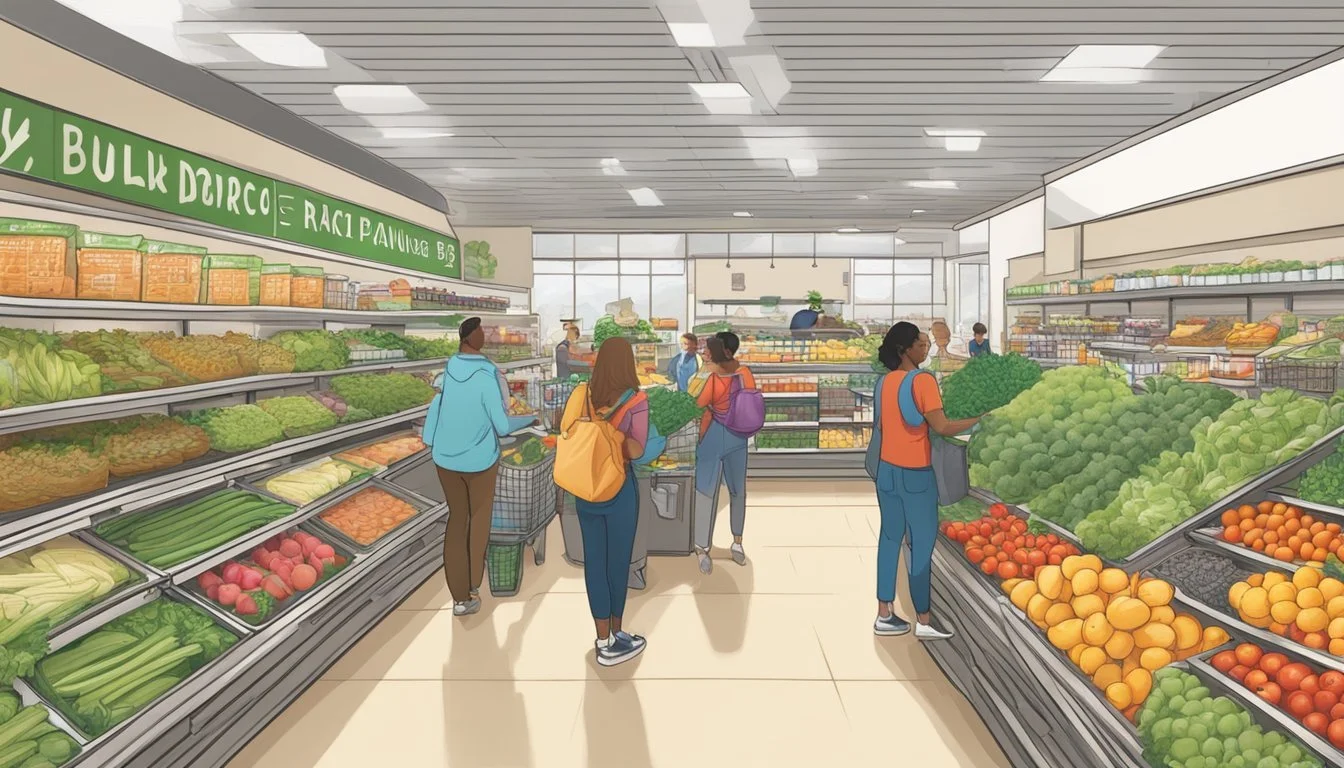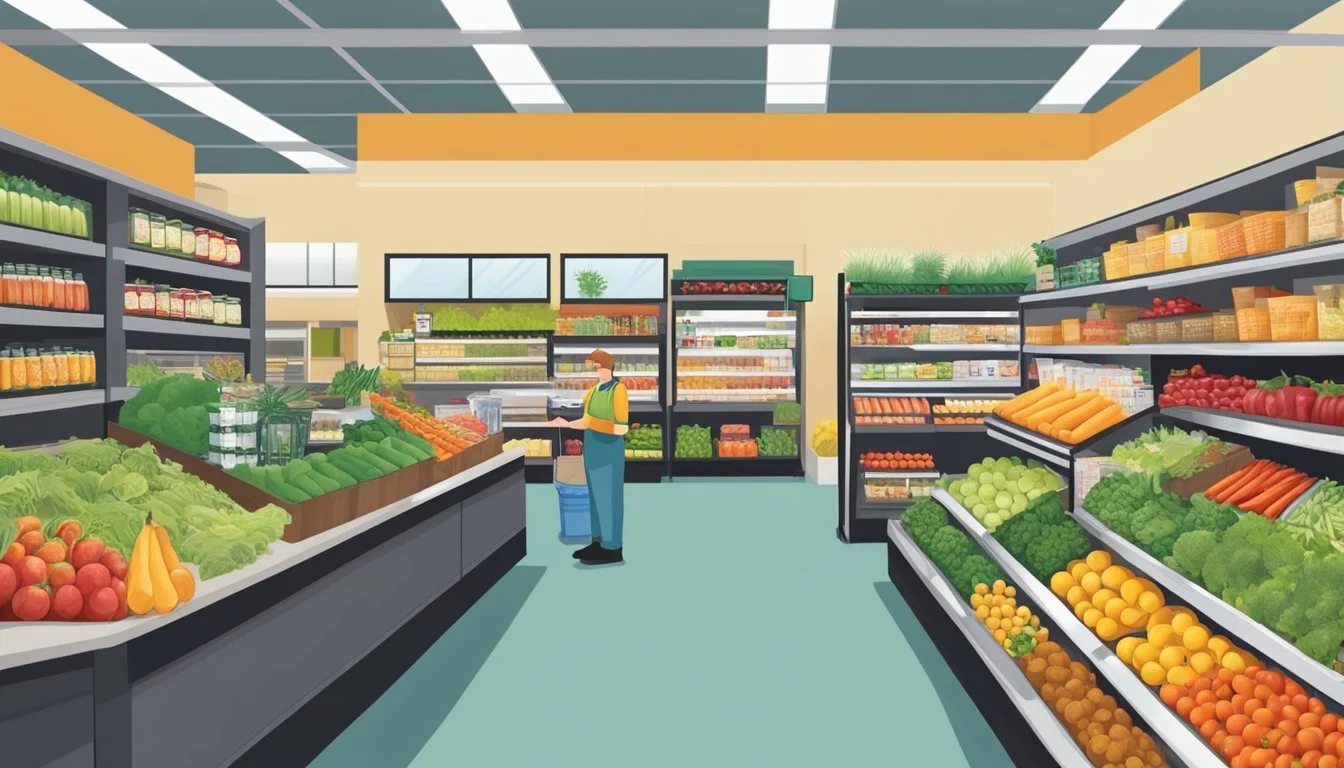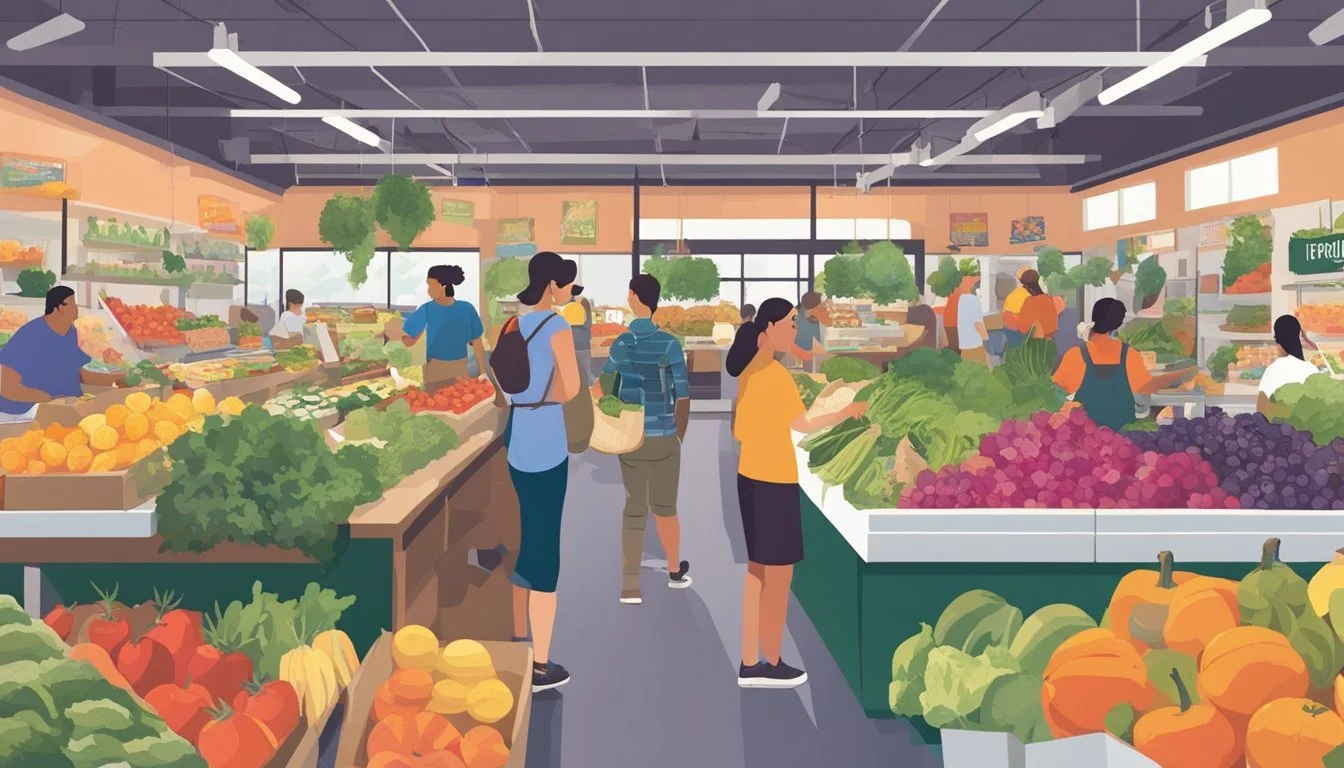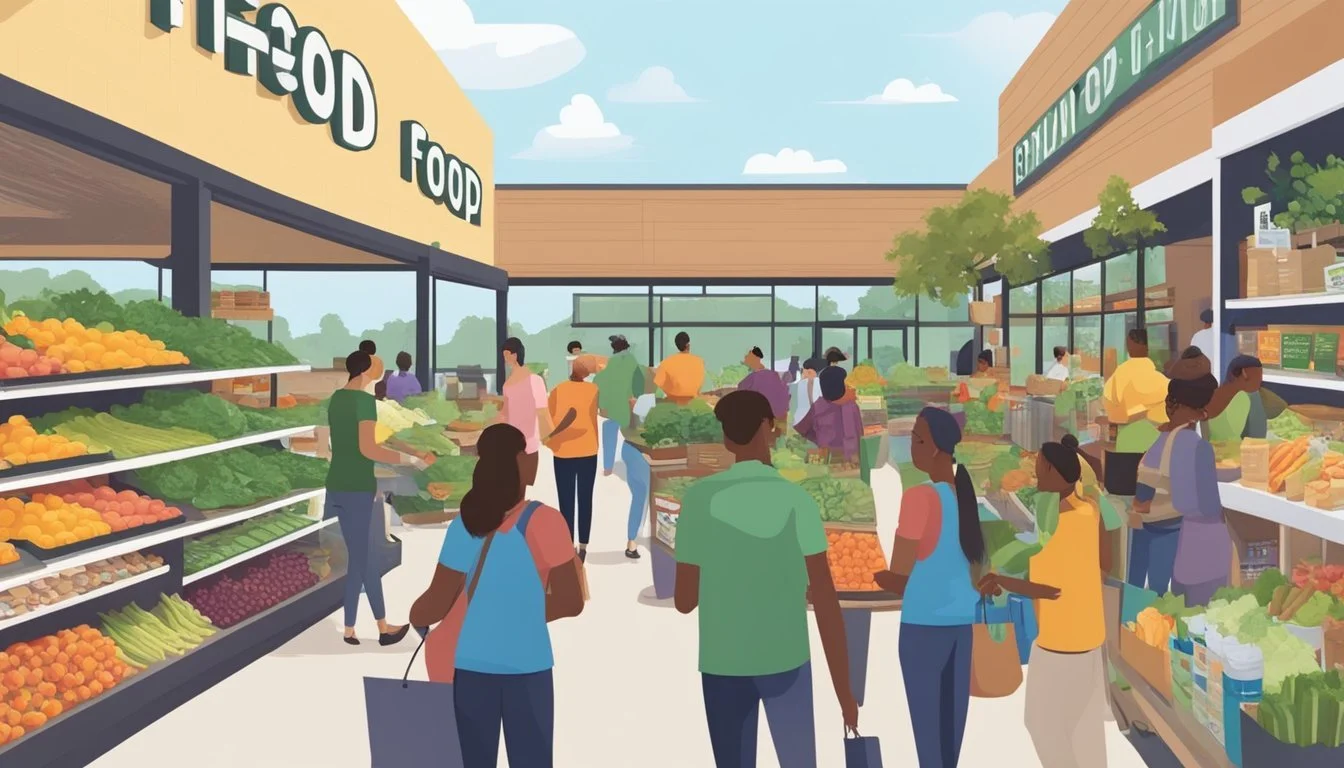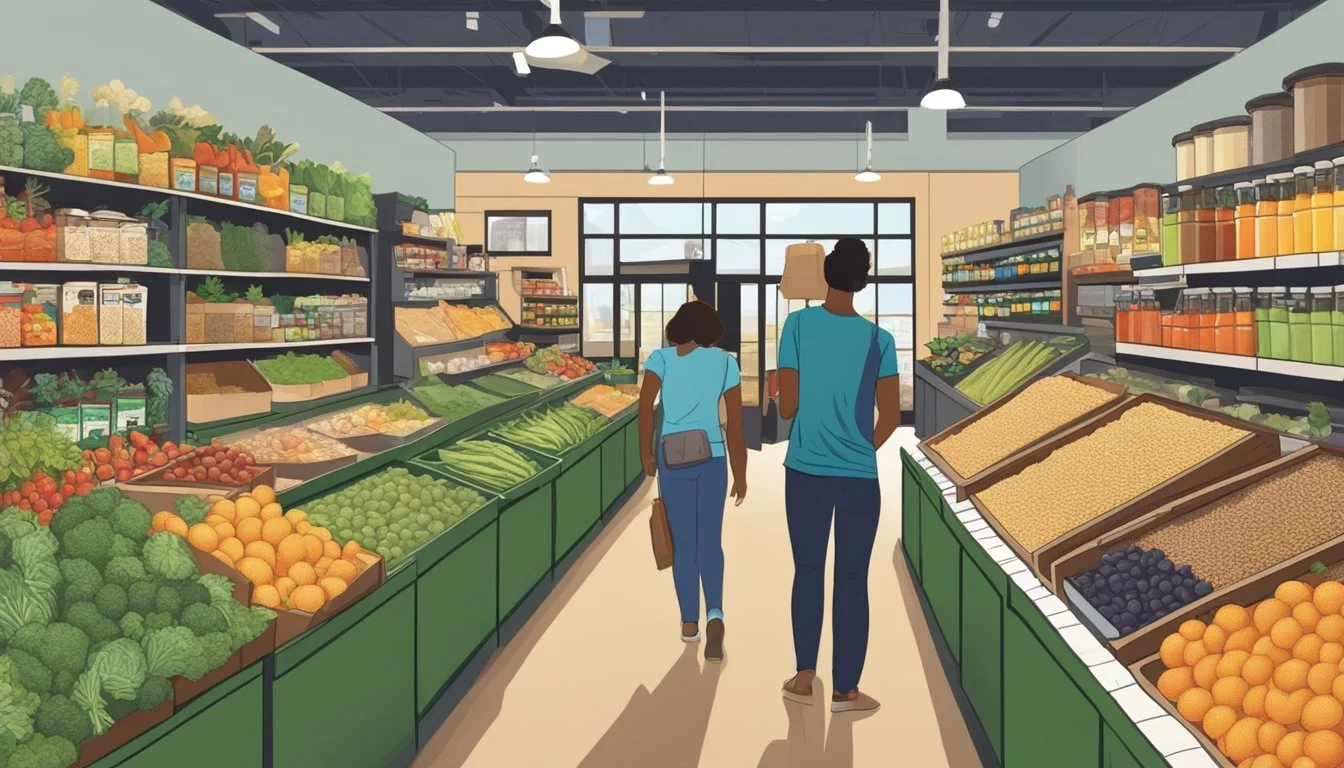Guide to Food Co-Ops in College Station, TX
Your Essential Resource
College Station, Texas, home to a vibrant community and the esteemed Texas A&M University, offers a unique blend of small-town charm and student-driven energy. One lesser-known aspect that embodies this synergy is the thriving presence of food cooperatives, or food co-ops, that provide local, organic foods to the residents. Food co-ops are member-owned businesses that operate for the benefit of their members and the community. They are committed to offering high-quality food produced and harvested with a focus on sustainability and community support.
The philosophy behind food co-ops aligns closely with the values of the College Station community, emphasizing the importance of locally sourced produce and goods. These establishments cater to a growing interest in farm-to-table experiences, fostering a connection between the residents and the origins of their meals. By participating in a cooperative, members have the opportunity to directly contribute to the local economy, support family farms, and partake in a shared commitment to healthful and environmentally conscientious living.
Food co-ops in the area present a diverse range of products from Wagyu beef, renowned for its quality and flavor, to fresh produce, honey, and artisan foods. Establishments such as P.B. and Honey Co-op and local ranches exemplify the dedication to natural methods and responsible farming integral to the co-op ethos. Residents of College Station thus have access to a food system that is transparent, equitable, and community-centered, enhancing the culinary landscape of this Texan city.
Understanding Food Co-Ops
Food cooperatives, or co-ops, provide a community-oriented alternative to traditional grocery shopping, distinguishing themselves through member-based operation and commitment to certain principles. In College Station, TX, a food co-op can offer residents a way to invest in local agriculture, support fair trade, and enjoy high-quality food.
History and Principles of Co-Ops
Food co-ops have a rich history, with roots in collective work and mutual aid. They operate on a set of guidelines known as the Rochdale Principles, which include voluntary and open membership, democratic member control, economic participation of members, and concern for the community. These co-ops are driven by values like self-help, democracy, equality, and solidarity. In practice, this means that the cooperative is owned and run by its members, who make decisions to meet their common economic, social, and cultural needs.
Different Types of Food Co-Ops
There are several forms of food co-ops, each serving different member needs.
Consumer Co-Ops: These are owned and operated by consumers, offering grocery items at fair prices. Members often get discounts or dividends.
Worker Co-Ops: In these co-ops, the workers own and manage the business, providing them with both employment and a say in operations.
Producer Co-Ops: Farmers or producers come together to market and sell their products more effectively at a larger scale.
Food co-ops in College Station might blend these models to best serve their local community, providing a space where members can purchase goods, have a say in the business, and contribute to a sustainable local economy.
Benefits of Joining a Food Co-Op
Joining a food co-op in College Station, TX, offers a range of benefits from supporting local farmers to improving personal health. These advantages align with conscientious consumerism and sustainable living.
Supporting Local Farmers
Food co-ops often establish direct partnerships with local farmers, ensuring that members have access to fresh, locally grown produce. By purchasing food from these co-ops, individuals help sustain the local farming community, fostering an economy where local revenue remains within the region. This support can lead to a thriving local agriculture sector and ensure food security.
Access to High-Quality Food
Members of food co-ops benefit from a selection of high-quality foods that may exceed what is typically available at conventional supermarkets. These establishments prioritize stocking organic and high-quality items, including specialty dietary options that members demand. As a result, shelves are frequently filled with items that adhere to rigorous standards.
Health and Nutritional Advantages
Patronizing a food co-op can lead to health benefits due to the availability of nutrient-rich, organic produce and minimally processed foods. Eating food from a co-op, especially when it includes organic options, can reduce the intake of pesticides and other chemicals. Regularly consuming such high-quality, fresh food contributes to an overall healthier diet.
Environmental Impact
Food co-ops have a significantly positive impact on the environment. By focusing on locally sourced goods, they reduce the carbon footprint associated with long-distance transportation. Many co-ops also implement sustainable practices like minimal packaging, which cuts down on waste production. Consequently, shopping at a co-op can be an ecologically responsible choice for consumers.
How Food Co-Ops Operate
Food cooperatives, commonly known as co-ops, offer a unique business model that is member-owned and democratically operated. They prioritize serving their members' needs and often engage in practices that benefit the community and environment. The operational framework of a food co-op in College Station, TX revolves around its membership base and the active participation of its members.
Membership and Pricing Structure
Membership in a food co-op is typically open to the community where individuals can purchase shares to become part owners. This financial contribution often comes with benefits such as discounts on purchases, voting rights, and a say in the governance of the co-op. The pricing structure in a co-op aims to strike a balance between being equitable for members and sustainable for the cooperative.
Joining Fee: One-time payment to buy a share/membership.
Annual Dues: Small fees to maintain active membership status.
Member Discounts: Reduced prices on products for members.
Patronage Dividends: A portion of the co-op's surplus returned to members based on patronage.
Volunteer and Participation Requirements
To cultivate a strong sense of community and keep operational costs low, food co-ops may encourage or require members to volunteer. The level of participation can vary from a few hours per year to more consistent volunteer shifts. Volunteers may assist with tasks such as stocking shelves, working the checkout counter, or participating in community outreach programs.
Volunteer Shifts: Scheduled times for members to contribute labor.
Roles: Diverse opportunities, from store operations to event planning.
Questions & Training: Resources and guidance provided for new volunteers.
Active Participation: Members may have obligations to attend meetings or participate in decision-making processes.
Locating Food Co-Ops in College Station
Residents of College Station, TX interested in food co-ops have options that emphasize community and sustainability. These co-ops cater to those seeking local, organic, and natural food products.
Your Health Source Co-Op
Location: College Station, TX
Products: A variety of organic and natural foods
College Station's Your Health Source Co-Op focuses on providing organic produce and sustainably-sourced goods to its members. They prioritize health by offering products that cater to nutritional well-being.
Cross Timbers Food Cooperative
Location: Operates in the wider region including College Station, TX
Products: Local produce, artisan goods, and bulk items
The Cross Timbers Food Cooperative is notable for its commitment to local farmers and producers. It serves the College Station area by connecting consumers to high-quality, local food sources.
Starting a Food Co-Op in College Station
In College Station, TX, establishing a food co-op requires careful planning and community involvement to ensure its success. The journey from concept to grand opening is marked by key stages, each with its own importance in the creation of a sustainable cooperative business.
Initial Steps and Research
A food co-op in the college town needs a solid foundation based on a thorough understanding of the local market and the specific needs of the community. Stakeholders should begin by:
Assessing local demand: Researching food needs and preferences within College Station.
Analyzing competition: Identifying existing grocery stores and niche markets.
Studying successful models: Looking at successful food co-ops for strategies that might be replicated.
Gathering Community Support
Community involvement is crucial for the co-op's longevity. They should focus on:
Building a core team: Assembling a group of dedicated individuals committed to the co-op's mission.
Engaging the public: Hosting community meetings to raise awareness and solicit input.
Fundraising efforts: Initiating donation campaigns, membership drives, and seeking local investors.
Legal and Financial Considerations
The co-op must navigate through complex legal and financial landscapes. Key considerations include:
Establishing a legal framework: Choosing an appropriate structure (e.g., nonprofit, cooperative) and registering the business.
Understanding regulations: Complying with food safety regulations and employment laws in Texas.
Securing finances: Preparing a comprehensive business plan, budget projections, and exploring funding sources such as loans and grants.
By focusing on meticulous research, community engagement, and a strong legal and financial groundwork, those organizing a food co-op in College Station can confidently set the stage for a thriving, community-driven enterprise.
Connecting with Local Producers
Strong connections between consumers and local producers in College Station, TX, allow for access to fresh, naturally-grown produce, meat, and dairy. These relationships enhance the community's understanding of sustainable agricultural practices and contribute to the region's food security.
Building Relationships with Farms
Local residents can build relationships with farms, such as Cox Family Farms, which is located just 11.48 miles from College Station. This farm has a history spanning over seventy-five years and provides consumers with chicken, beef, eggs, and honey. Patrons can often meet with farmers directly at farmers markets or through farm stands, fostering a personal connection and supporting the local agricultural economy.
Understanding Local Agricultural Practices
Local farms around College Station, including those featured on platforms like LocalHarvest, often employ sustainable practices. These may not always come with certifications but are committed to delivering high-quality, locally-sourced vegetables and fruit. By engaging with these producers, consumers can learn more about how their food is grown and the benefits of natural, chemical-free farming.
Forming a Community Supported Agriculture (CSA)
Community Supported Agriculture (CSA) models are an avenue for residents to receive regular distributions of farm-fresh produce. Participating in a CSA, such as the ones listed on sites like LocalHarvest or TexasRealFood, ensures that community members get a variety of seasonal produce, and simultaneously, local farms gain predictable income and market stability. Through CSA programs, community members actively partake in the support and growth of their local food systems.
The Role of Food Co-Ops in the Local Economy
Food co-operatives in College Station, TX, serve as critical hubs for local commerce and sustainable practices, boosting the economic vitality and supporting the community's move towards more environmentally friendly business models.
Economic Benefits for College Station
Food co-operatives in College Station have a demonstrable impact on the local economy. They typically source products from nearby farmers and producers, ensuring money spent by consumers is reinvested locally. This practice supports local employment, with funds circulating within the community, and fosters economic resilience.
Local Investment: A significant portion of a food co-op's revenue is dedicated to local wages and purchases.
Job Creation: By participating in the local economy, food co-ops contribute to job creation within the community.
Promoting Local and Sustainable Business Practices
The emphasis food co-ops place on sustainability is evident through their business practices and product selections. These cooperatives tend to prioritize goods that are organic, environmentally friendly, and locally produced, thereby reducing transportation emissions and supporting local growers committed to sustainable methods.
Local Producers: Food co-ops work with an average of 281 local farms, enhancing the local food system's robustness.
Environmental Impact: By supporting local farms, co-ops help maintain lower carbon footprints compared to traditional food systems.
Through their focus on community-driven economics and sustainable practices, food co-operatives in College Station not only enrich the local economy but also play a pivotal role in setting standards for environmental stewardship and social responsibility.
Educational Opportunities at Food Co-Ops
Food Co-ops in College Station, TX provide enriching educational opportunities designed to foster a sense of community and enhance the culinary skills of their members. They offer a range of workshops and community events to engage individuals in learning and cooperation.
Workshops and Cooking Classes
Food Co-Ops frequently host workshops that cover various aspects of food sourcing, preparation, and nutrition. These sessions may include:
Home gardening tips: Educating members on growing their own produce.
Cooking classes: Introducing healthy recipes and cooking techniques.
Cooking classes at Food Co-Ops often emphasize:
Healthy eating habits.
Use of local, organic ingredients.
Seasonal cooking, focusing on the produce available in the current season.
These classes and workshops aim to empower the community with knowledge and skills to make healthier and more sustainable food choices.
Community Events and Meetings
Food Co-Ops are centers for community engagement through events and meetings which can include:
Local farmer spotlights: Highlighting the stories and practices of local farmers.
Monthly Co-Op meetings: Discussing Co-Op developments, initiatives, and member involvement.
The events serve not only as educational platforms but also as venues for members to voice their thoughts, contribute to decision-making, and learn about the operation and management of the Co-Op. The ultimate goal is to foster a well-informed and active community around the shared interest in sustainable food systems.
Marketing and Outreach for Food Co-Ops
Effective marketing and outreach are pivotal for the success of food co-ops, involving strategic use of social media, direct engagement with potential members, especially college students, and regular communication through newsletters.
Utilizing Social Media
Food co-ops in College Station can leverage social media platforms to reach a broader audience. Facebook, Instagram, and Twitter can be employed to showcase products, share co-op news, and promote community events. It is crucial to create content that resonates with local demographics, emphasizing sustainability, local produce, and cooperative values.
Facebook: Daily updates, event listings, and sharing community news.
Instagram: High-quality images of products, stories featuring local vendors.
Twitter: Quick updates, industry news, and customer service interactions.
Engaging with College Students
College students represent a significant segment of the community that can benefit from and contribute to food co-ops. Co-ops should actively involve students by:
Establishing partnerships with Texas A&M University and other colleges to facilitate educational workshops.
Offering student discounts or memberships, encouraging their participation and word-of-mouth marketing.
Creating Newsletters and Updates
Regular newsletters and updates keep members and potential customers informed about the co-op's offerings and initiatives. They should include:
New Product Announcements: Spotlight seasonal items or new additions.
Co-op Achievements: Share milestones, like expanding the store or community impacts.
Monthly Newsletters can highlight upcoming events, member stories, and special discounts. Emailed updates ensure consistent engagement with the community.
Frequently Asked Questions about Food Co-Ops
What is a food co-op?
A food cooperative, or food co-op, is a grocery store model where ownership and decision-making are shared among members. They typically prioritize local, high-quality food, and support sustainable agriculture.
How does a food co-op differ from a traditional grocery store?
Food co-ops often source their products from local farms and producers, focusing on organic and natural foods. This local sourcing supports community agriculture and can provide fresher produce options. Unlike traditional grocery stores, co-ops are owned and governed by their members, who can influence product selection and business practices.
Can anyone shop at a food co-op or do you need a membership?
Non-members are usually welcome to shop at co-ops; however, members might enjoy benefits such as discounts. Membership involves purchasing a share, which typically comes with the right to vote on co-op matters.
What kind of products do food co-ops offer?
Most co-ops offer a range of products similar to a typical grocery store, including dairy, eggs, meat, produce, and cheese. They may specialize in locally-grown, organic produce, pastured meats, and dairy from family farms. Some co-ops also offer CSA, or Community Supported Agriculture, shares allowing members to receive regular selections of seasonal produce.
How does supporting a food co-op benefit the community?
By shopping at a food co-op, consumers directly support local farms and ranches, help to foster the local economy and contribute to the availability of locally grown food. It also promotes regenerative agricultural practices by sourcing from farms that prioritize the health of the land.
Where can I find information about food co-ops in College Station, TX?
For those in College Station seeking information on local food co-operatives, social media platforms and community bulletin boards often share the latest news. Additionally, organizations like Your Health Source and Cross Timbers Food Cooperative might provide resources or direct individuals toward local buying clubs or food cooperatives in Central Texas.
Please note that for the most current details on individual food co-ops, including products, membership details, and operational questions, it is recommended to contact the co-ops directly or visit their respective websites.

